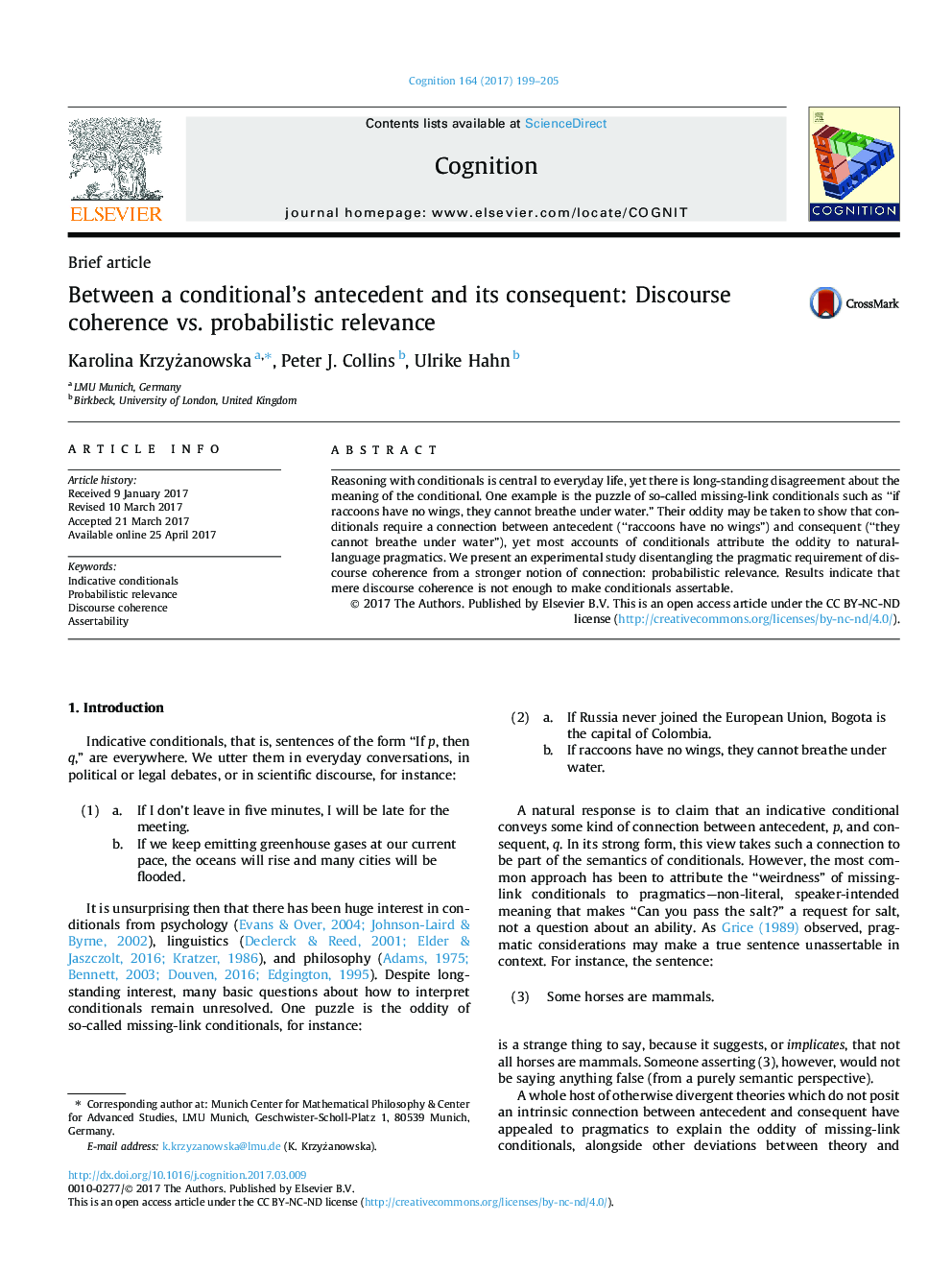| Article ID | Journal | Published Year | Pages | File Type |
|---|---|---|---|---|
| 5041612 | Cognition | 2017 | 7 Pages |
â¢We tested a pragmatic account of why missing-link conditionals (“if a fish has eyes, it swims”) are odd.â¢Our experiment compares two explanations: probabilistic relevance and discourse coherence.â¢Discourse coherence relations linking antecedents and consequent are not sufficient.â¢Antecedents must be relevant for consequents for conditionals to be assertable.
Reasoning with conditionals is central to everyday life, yet there is long-standing disagreement about the meaning of the conditional. One example is the puzzle of so-called missing-link conditionals such as “if raccoons have no wings, they cannot breathe under water.” Their oddity may be taken to show that conditionals require a connection between antecedent (“raccoons have no wings”) and consequent (“they cannot breathe under water”), yet most accounts of conditionals attribute the oddity to natural-language pragmatics. We present an experimental study disentangling the pragmatic requirement of discourse coherence from a stronger notion of connection: probabilistic relevance. Results indicate that mere discourse coherence is not enough to make conditionals assertable.
